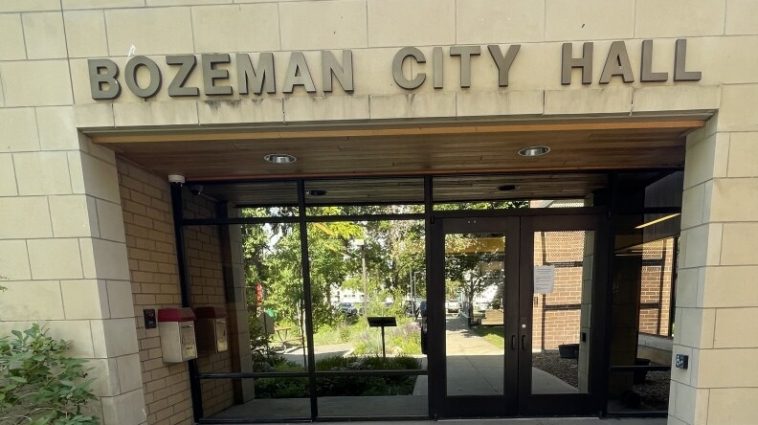BOZEMAN, Mont. – In a move that is expected to impact the city’s ongoing housing crisis, Bozeman City Commissioners voted 3-1 on Tuesday to repeal and replace the existing Affordable Housing Ordinance, approving a revised version drafted by city staff. Commissioner Douglas Fischer voted in dissent, while Commissioner Jennifer Madgic, who previously opposed the draft at a Community Development Board meeting earlier this month, was absent.
The original Affordable Housing Ordinance, passed in 2022, was introduced after the city lost the authority to implement inclusionary zoning. Its passage marked a significant shift in how Bozeman was addressing its housing shortage, with incentives aimed at encouraging developers to include affordable units in new projects. However, the ordinance quickly attracted controversy, particularly after the first development to utilize its deep incentives, the Guthrie project, faced backlash for its scale and design.
In response to growing opposition from neighborhood groups and residents, who argued that the ordinance led to dense, unattractive developments that did little to address affordable housing needs, city officials began working on a revised version. Despite criticism, Bozeman Mayor Terry Cunningham and other city leaders have defended the ordinance, citing its role in facilitating over 1,000 new affordable housing units through shallow incentives such as reduced lot sizes.
The new version, which underwent multiple revisions, includes several key changes designed to address community concerns. Among the updates, the revised ordinance reduces some of the more controversial incentives, including those relating to height and parking requirements. The duration for which affordable units must remain accessible has been extended from 30 years to 50 years, and the targeted income levels for eligibility have been expanded to include individuals earning up to 60% of the area’s median income, down from 80%.
However, even in its revised form, the ordinance continues to face significant pushback. Critics, including Bozeman resident Deanna Campbell, argue that the changes still disproportionately benefit developers at the expense of the community. “This Affordable Housing Ordinance might well be called the developers’ delight act,” said Campbell. “Developers get bonuses to build dense, boxy, unsightly projects that disrupt neighborhoods, do not deliver affordable housing, and drive property taxes up.”
Another point of contention is the provision allowing developers to either donate land or pay a cash-in-lieu contribution instead of constructing affordable units. Some residents fear this will lead to further gentrification, with affordable housing projects concentrated in already impacted neighborhoods. “If I were a developer, I would exchange money and land and not deal with the Affordable Housing parameters,” said Bozeman resident Karen Sanchez. “Where is the environmental justice there?”
However, supporters of the revised ordinance argue that the city’s urgent need for affordable housing cannot afford delays. Emma Papasian, a local renter, shared her perspective on the housing shortage, highlighting how it affects not only residents but also the city’s workforce. “We do not have time to wait for the silver bullet to our housing shortage,” said Papasian. “I don’t personally believe that there really is a choice between a form of housing and the potential and consequential workforce drain that would happen if we continue to just postpone to try and find this perfect solution.”
The revision process included extensive community engagement, including surveys, open houses, and presentations to city advisory boards. Despite the ongoing debate, the ordinance’s revisions are seen by many as a necessary step to address the city’s growing need for affordable housing. The changes to the ordinance are expected to lead to the development of additional projects in the coming years, including the Hidden Creek and Alder and Sage developments, which are already in the pipeline.
To further address concerns, commissioners passed several amendments to the revised ordinance. These include reducing the maximum allowable height in select zones, ensuring equal access to amenities for residents of affordable units, requiring developers to meet with neighborhoods during the planning process, and mandating on-site ADA parking spaces.
Deputy Mayor Joey Morrison acknowledged the difficult balancing act faced by the city, stating, “For folks that point out, aptly so, that this is a handout to the development community – it absolutely is. That’s all that we have at our disposal to rein in development into the type of projects that we want.”
Looking ahead, commissioners have expressed their intent to consider additional strategies to combat the housing crisis, including potential incentives for accessory dwelling units (ADUs), which could offer another solution to increasing affordable housing without displacing current residents.
As Bozeman continues to grapple with its housing challenges, the debate over the Affordable Housing Ordinance is far from over. While some view the revised ordinance as a necessary step forward, others believe that more localized, long-term solutions are needed to protect the community while addressing the city’s affordability crisis.



